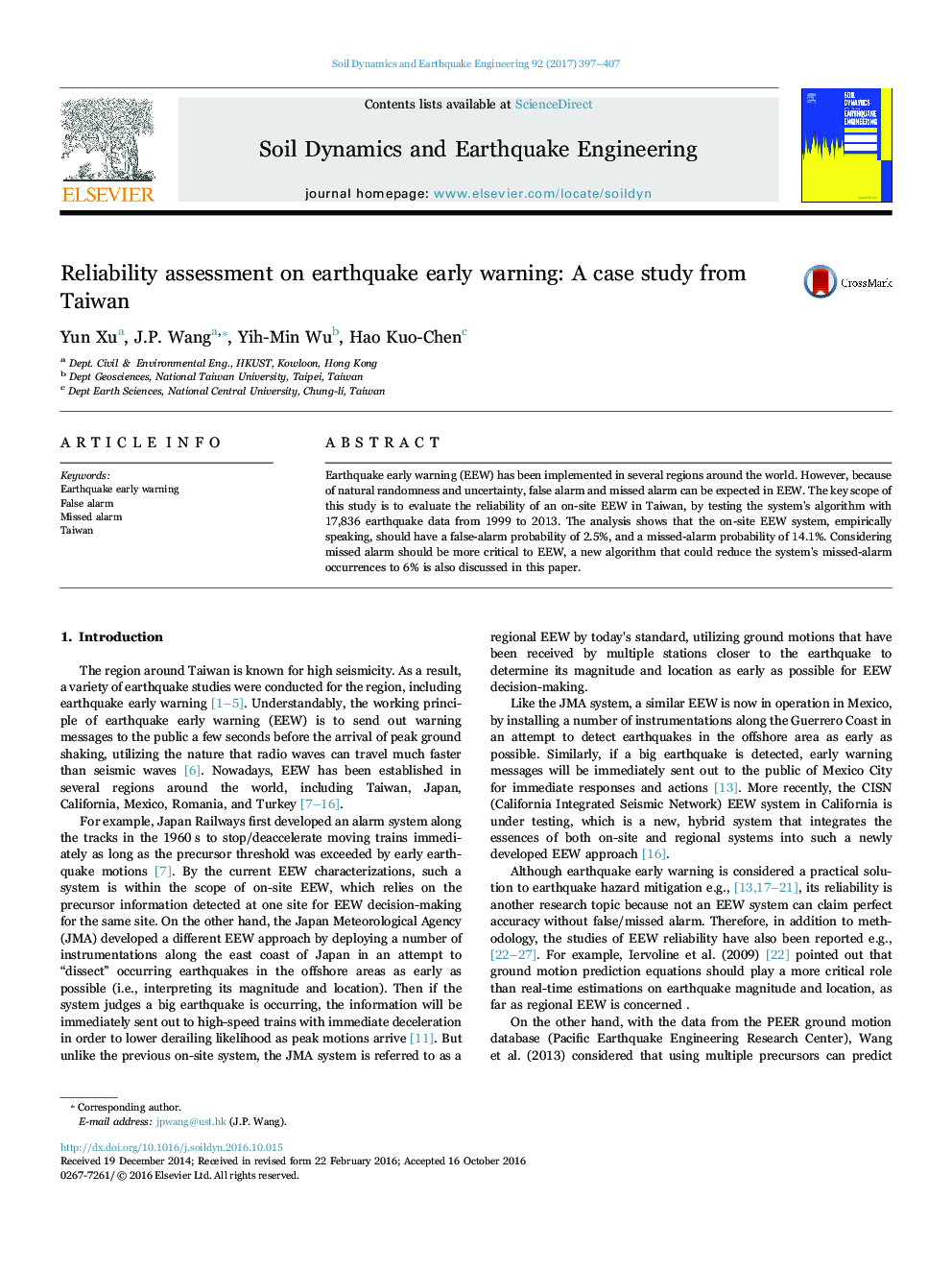| Article ID | Journal | Published Year | Pages | File Type |
|---|---|---|---|---|
| 4927179 | Soil Dynamics and Earthquake Engineering | 2017 | 11 Pages |
Abstract
Earthquake early warning (EEW) has been implemented in several regions around the world. However, because of natural randomness and uncertainty, false alarm and missed alarm can be expected in EEW. The key scope of this study is to evaluate the reliability of an on-site EEW in Taiwan, by testing the system's algorithm with 17,836 earthquake data from 1999 to 2013. The analysis shows that the on-site EEW system, empirically speaking, should have a false-alarm probability of 2.5%, and a missed-alarm probability of 14.1%. Considering missed alarm should be more critical to EEW, a new algorithm that could reduce the system's missed-alarm occurrences to 6% is also discussed in this paper.
Related Topics
Physical Sciences and Engineering
Earth and Planetary Sciences
Geotechnical Engineering and Engineering Geology
Authors
Yun Xu, J.P. Wang, Yih-Min Wu, Hao Kuo-Chen,
